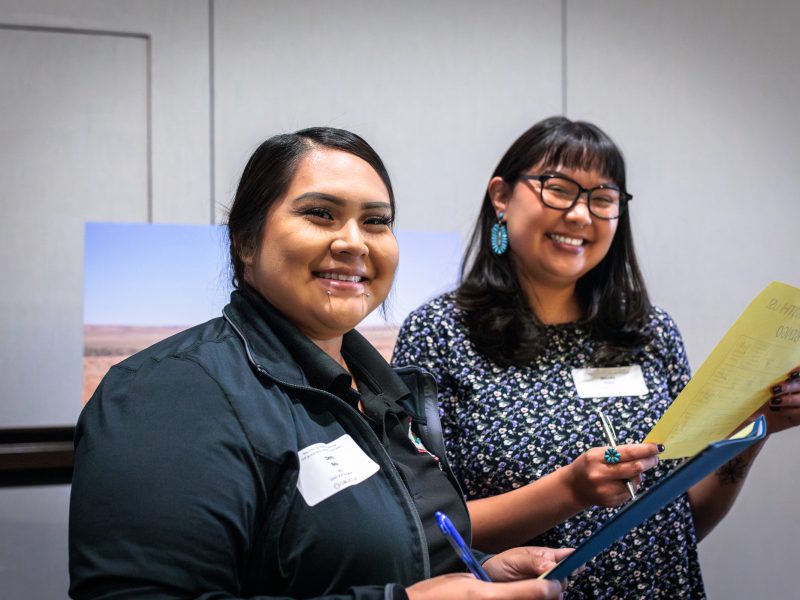Now is the Time: Integrating and Reimbursing CHR Services within Tribal Health and Social Systems
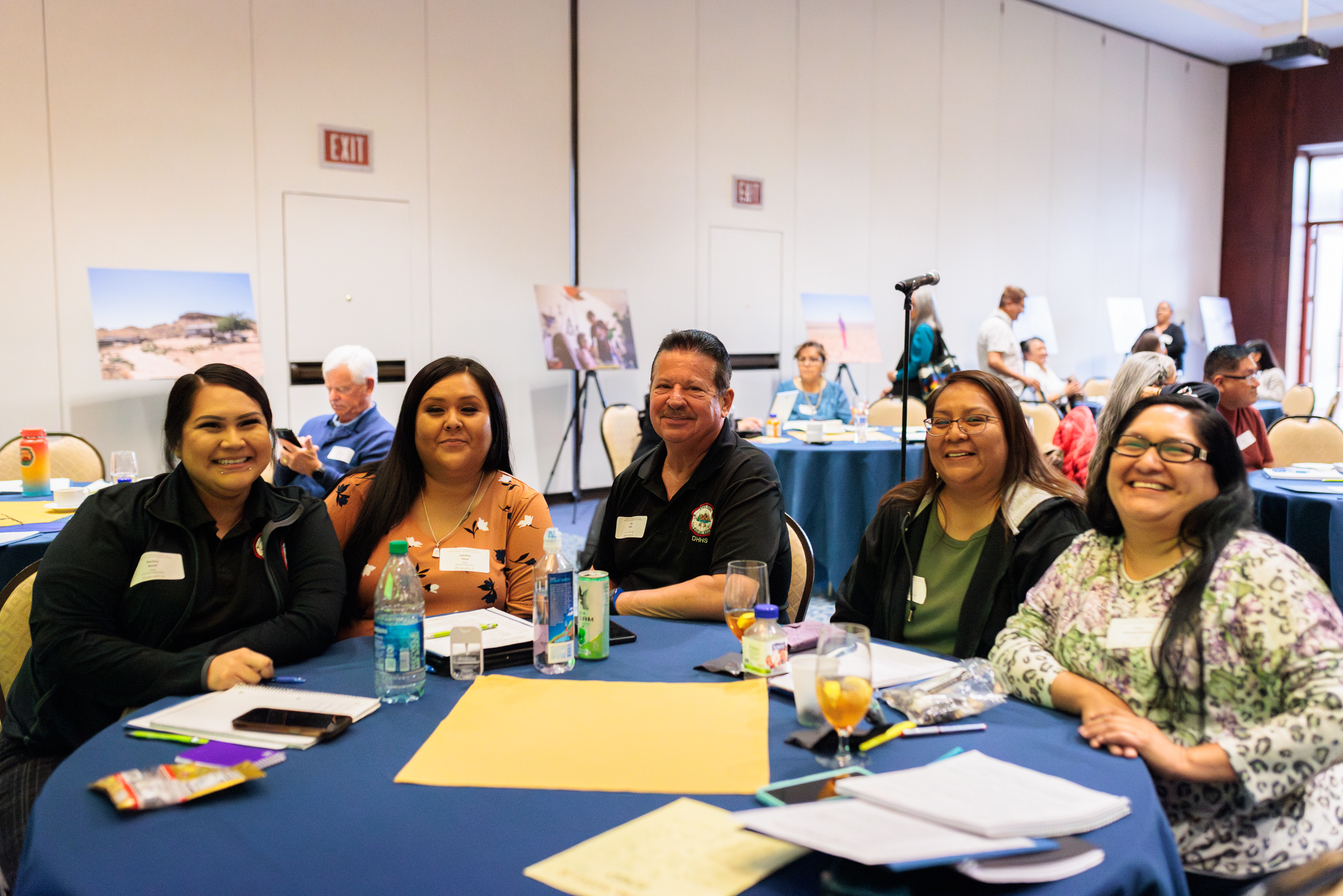
The CDC-funded CHRs WITH uS! (Community Heath Representative (CHR) Workforce Integration in Tribal Health Systems) initiative hosted a groundbreaking event on in May at Flagstaff’s High Country Conference Center. This first-of-its-kind conference, crafted by CHR leaders and allies, aimed to enhance rural and urban American Indian and Alaska Native (AI/AN) health across Arizona. Attendees learned from speakers and workshop facilitators about setting up third-party billing through Arizona Medicaid to support payment and expansion of the CHR workforce to provide critical health education and patient support services to address AI/AN health and wellbeing.
CHRs: A lifeline for Native health and wellbeing
Community health representatives (CHRs) constitute a unique and vital workforce dedicated to enhancing (AI/AN) community health and wellness throughout the United States. Originating from the Indian Health Service (IHS) in the 1960s, CHRs have evolved to deliver outreach, education, informal counseling, social support, patient-centered care, and advocacy services. These efforts are instrumental in addressing the disproportionately poor health outcomes experienced by American Indian populations.
By equipping patients with essential resources and promoting self-reliance, CHRs play a critical role in improving public health with and for AI/AN people.
Tribal leaders set the pace for CHR reimbursement
The conference was organized by the CHRs WITH uS! team at the Center for Health Equity Research (CHER) and brought together 70 + tribal public health and healthcare leaders, licensed providers, billing experts and CHR program leadership and staff from Arizona’s 19 CHR programs for a dynamic day of learning and planning for CHR workforce development and sustainability.
Community Health Workers/Community Health Representatives (CHW/CHR) in Arizona, certified by the Arizona Department of Health Services (ADHS), are authorized to provide AHCCCS-covered member education and preventive services. Eligible members must have a chronic condition, be at risk for a chronic condition, or have a documented barrier (such as disability, social isolation, or language barriers) affecting their health. Documentation of these conditions or barriers in the member’s medical record is necessary for Medicaid to reimburse CHW/CHR services.
Participants discovered how to integrate CHR services into clinical and social care teams and how to expand these services though two reimbursement pathways offered by the Arizona Medicaid system, Arizona Health Care Cost Containment System (AHCCCS).
According to post-conference evaluation responses, more than half of the attendees planned to start billing Medicaid within the next six months to a year, while 30% had more aggressive plans to begin billing within three to six months, paving the way for sustainable CHR service funding. Sixty percent of attendees planned to pursue billing Pathway 1, which is designed for CHRs employed by an AHCCCS registered provider.
On March 4, 2024, AHCCCS introduced a new Provider Type called “CHW Organization.” This allows community-based organizations, localities, Tribal organizations like CHR programs, and other institutions employing ADHS-certified CHW/CHRs to enroll directly with AHCCCS and reimburse for medically necessary services.
Notably, 30% of conference attendees planned to pursue this pathway (Pathway 2), making this conference timely.
The inception and progress of the CHR movement
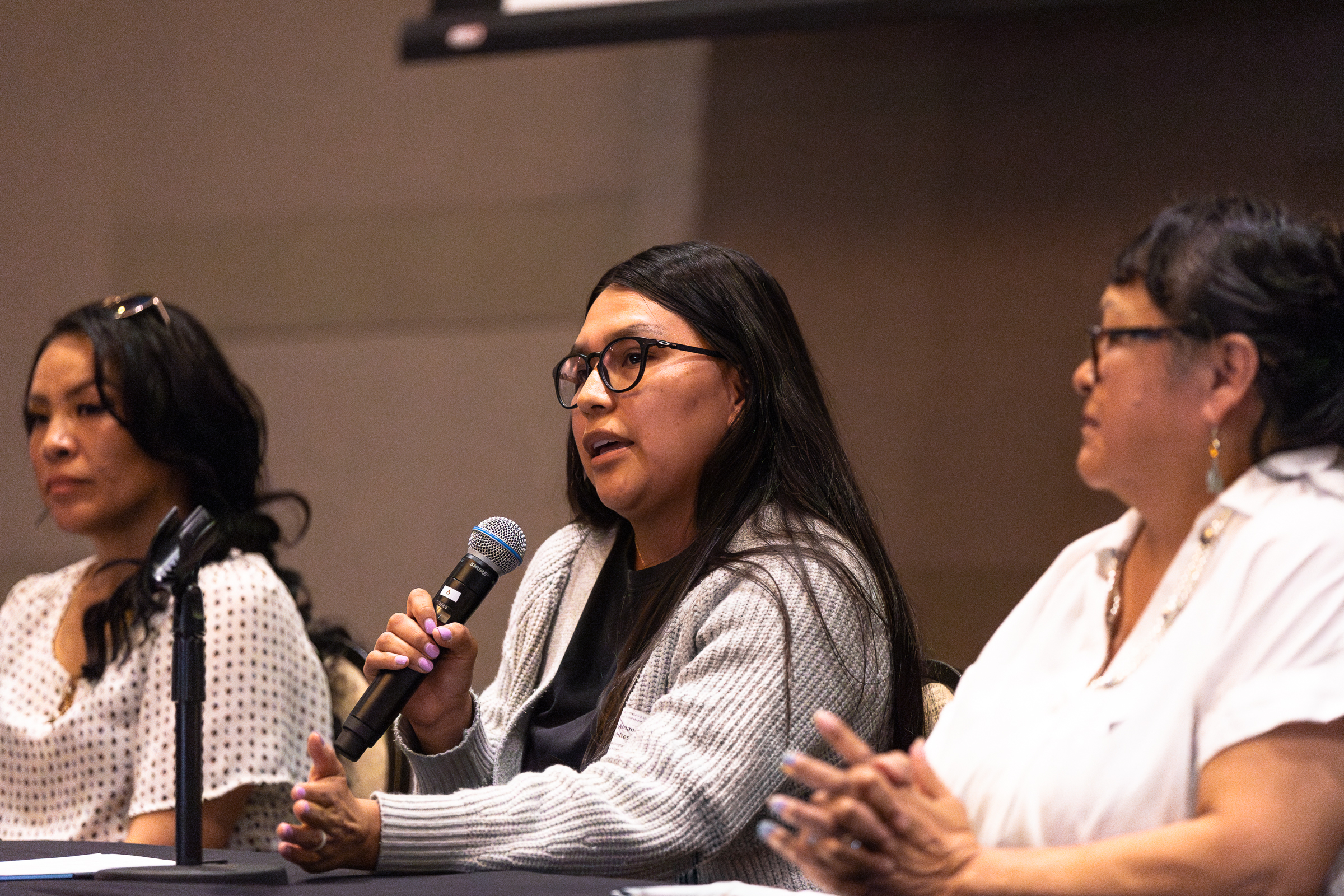
Since 2015, in direct response to statewide organizing efforts among the broader CHW workforce and allies, CHR programs of Arizona organized annual CHR Policy Summits to dialogue and plan for the unique issues and opportunities facing CHR workforce sustainability and advancement.
Over time, annual Summits resulted in an Arizona CHR Workforce Movement, which advocates for inclusion of CHRs in state and national level dialogue regarding workforce standardization, certification, training, supervision, and financing. Movement members include CHR programs representing 19 Tribes, represented by CHR program directors, CHRs, health department directors, leading AI/AN health and social policy entities, as well as state health department, Medicaid and university partners.
Like many professional associations and conferences, annual CHR Summits and monthly CHR Movement meetings provide an interactive environment and mode of continuous communication among stakeholders in which policy initiatives and advocacy strategies unique to the CHR workforce can be discussed and deliberated.
Since 2015, the Arizona Advisory Council on Indian Health Care (AACIHC) has served as the backbone or convening agency for the Movement, with a larger mission to convene Tribal, state, and federal entities—including 22 representatives from each of the state’s federally recognized AI/AN Tribes—to advocate for increasing access to high quality healthcare programs for all AI/ANs in Arizona.
Charting the course for CHR sustainability
As the CHR Movement approaches its first decade, sustainability has become a focal point, necessitating the involvement of healthcare leaders such as chief medical and financial officers and licensed providers to set the pace for integrating CHRs within healthcare teams and paving the path for CHR integration within electronic referral and medical record systems.
Over the years, CHER has collaborated closely with CHR programs and health policy experts to document the impact of CHRs as members of the clinical care team and best organizational practices for CHR integration.
Sustainability was the central theme and purpose of this special conference held on May 15 at Northern Arizona University. This event marked the first instance where the audience extended beyond CHRs to include medical billing staff, doctors, CMOs, CFOs, and other healthcare leaders. Such diverse leadership participation underscores the growing recognition of CHRs’ contributions to healthcare.
Key insights and inspiring presentations
The conference commenced with a blessing from Derik Yellowhair, delivered in the Diné language, followed by a welcoming address from John Molina, Executive Director of AACIHC.
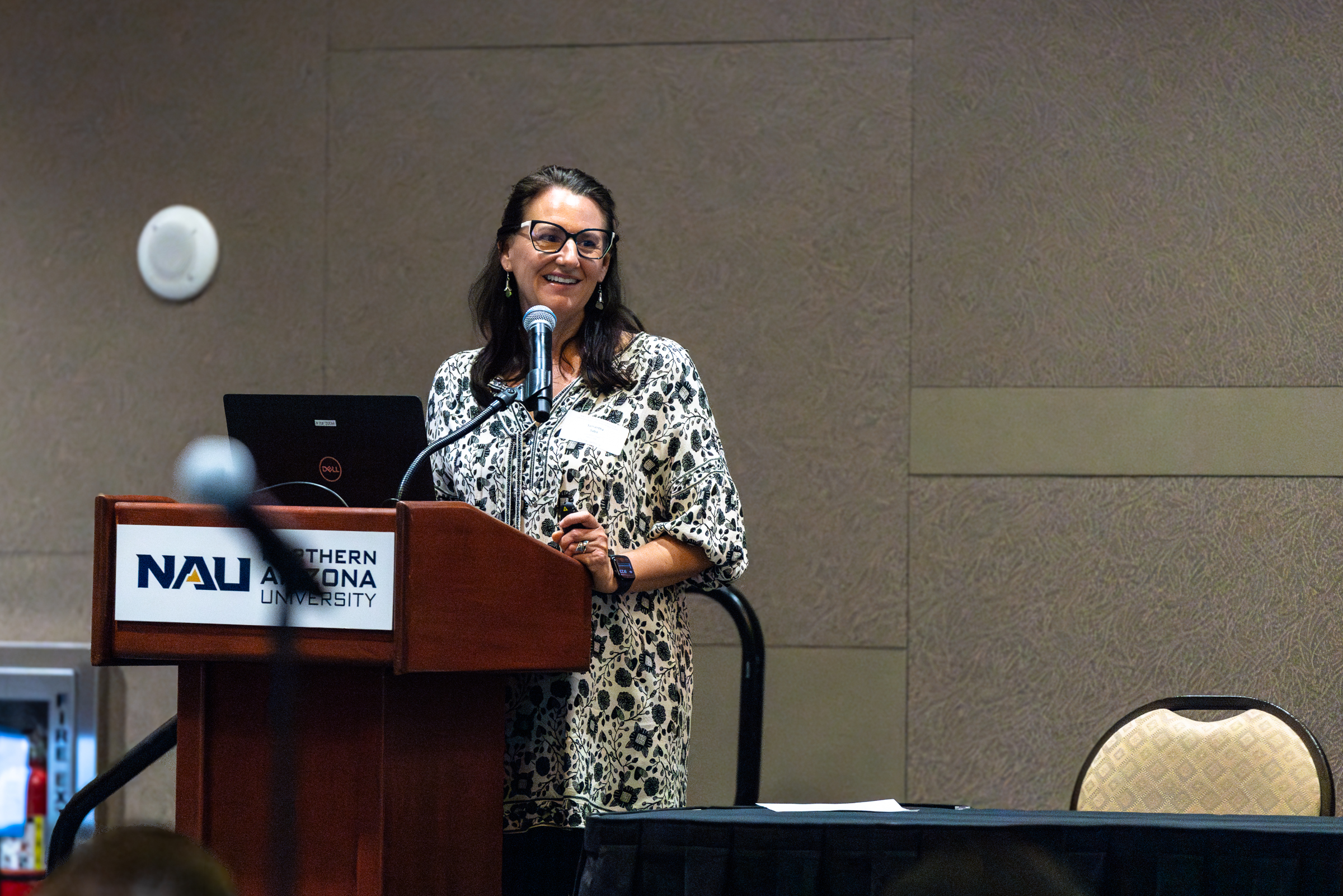
Following Molina, Samantha Sabo, CHER Associate Director and professor of health sciences, presented on “The History and Science of CHR Integration in Tribal Health and Social Systems,” highlighting the major policy opportunities within Medicaid and Medicare for CHR service reimbursement due to the substantial impact of CHRs on health outcomes and systems.
Sabo emphasized that CHRs are essential advocates and community experts whose integration into clinical workflows is an evidence-based practice which enhances patient-centered, culturally tailored care by bridging culture and language and connecting patients to community resources.
CHR momentum
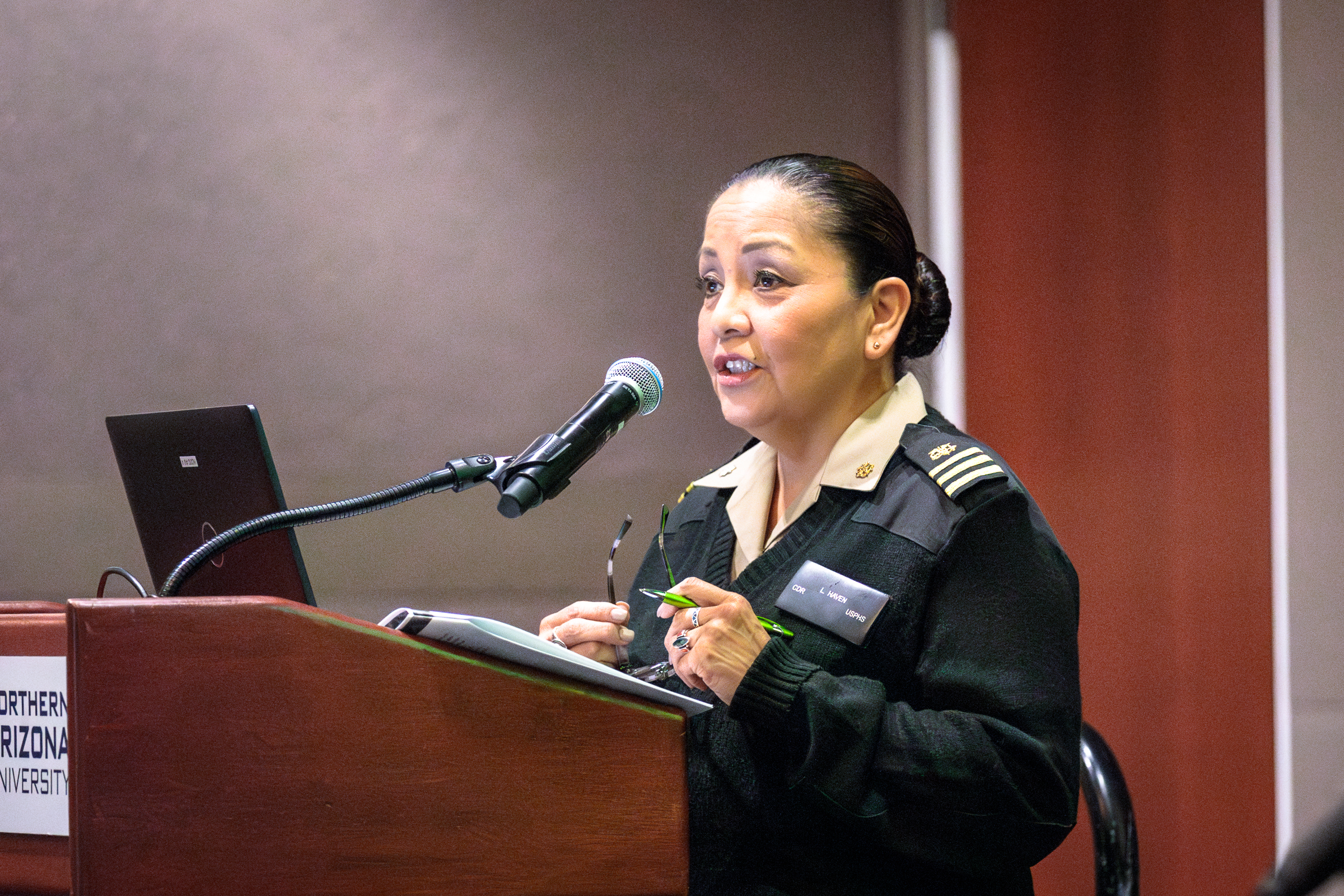
Commander Loretta Haven’s presentation on the “National and Area IHS CHR Strategic Plan Priority Area 3: Sustainability” underscored the urgency of alignment of CHR integration efforts nationally.
Haven is the CHR and Public Health Nurse consultant for the Phoenix Area Office of IHS and provides direct support to 44 CHR programs across Arizona, Nevada and Utah.
Haven outlined several strategies to promote sustainability, including increasing awareness of CHR certification, Medicaid billing opportunities, and integrating CHRs into patient-centered medical home initiatives. She referenced key areas of IHS’ National CHR Strategic Plan that guide programs in implementing priority strategies.
Navigating Medicaid
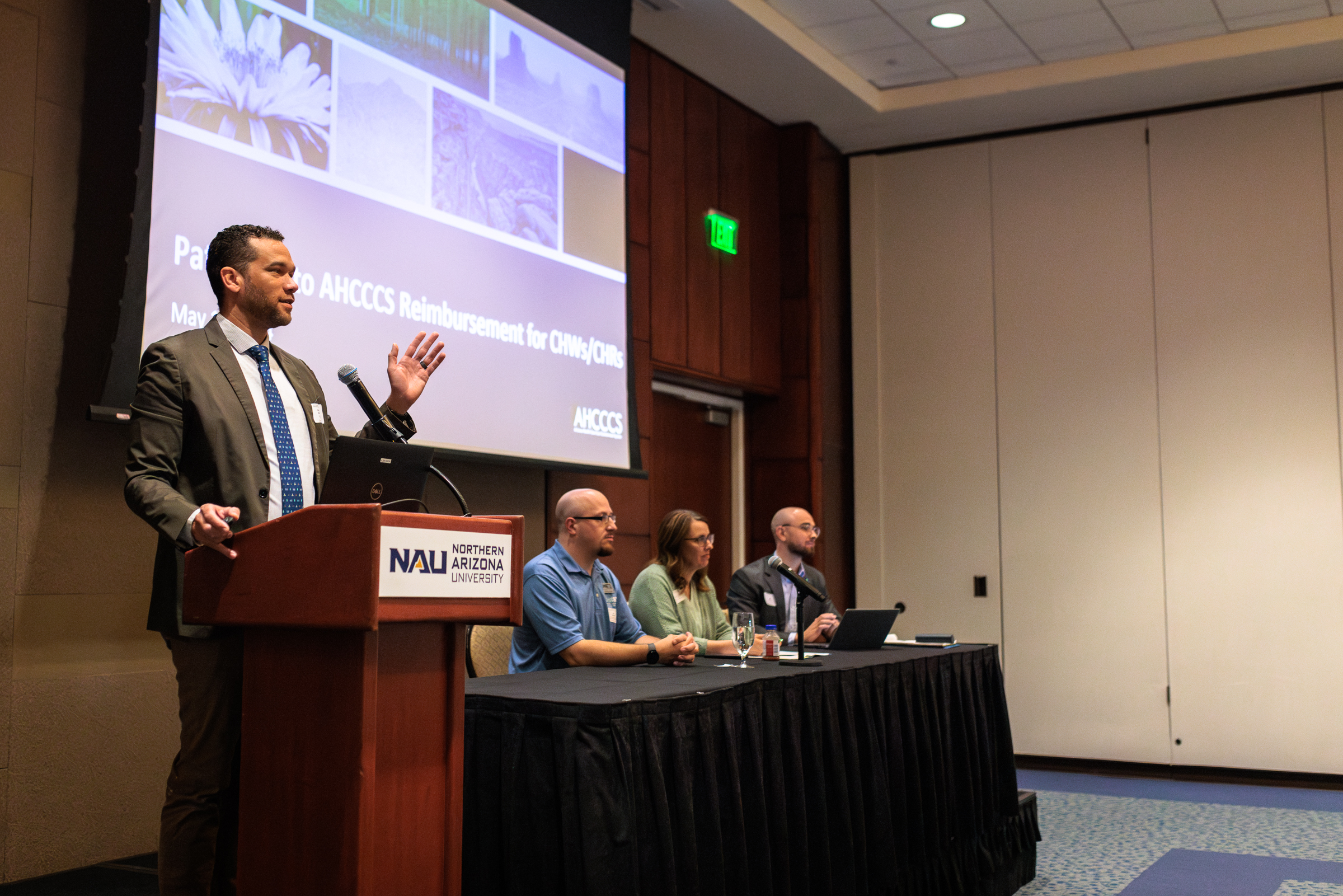
The remainder of the morning gave the floor to five key topics and players in the Medicaid reimbursement process within IHS and Tribal healthcare settings:
- Arizona Reimbursement Pathways Overview: Marcus Johnson, Deputy Director of Community Engagement and Regulatory Affairs, AHCCC
- Diversity of Billing Pathways in Tribal Settings: Kim Russell, Director, Navajo Nation Department of Health
- IHS – CHR Program Partnership Model: J. T. Nashio, CHR Manager, White Mountain Apache Tribe and Dr. Travis Austin, Director of Preventative Medicine, IHS Whiteriver Service Unit
- CHR Integration within a Tribal 638 Model: Rema Metts, Director, PHN/CHR, and Amanda Whitesinger, CHR Program Manager, Gila River Health Care Corporation
- South Dakota CHR Tribal Reimbursement Models: Ben Tiensvold and Vicky Palmreuter, CHW Collaborative of South Dakota
- Contexture – The Role of the Health Information Exchange and Community
- Cares Platform in Care Coordination: Alex Demyan, Contexture, Vice President, Government Relations- AZ
These sessions and accompanying panel Q&A talked the audience through the complexities and significant benefits of seeking reimbursement for CHR services. The Tribal liaisons for the Community Health Worker Collaborative of South Dakota shared firsthand experiences of supporting Tribes in billing for CHR programs, emphasizing the importance of the reimbursement process.
According to Tienfold, “Despite being a challenging process, with Arizona’s hourly CHW/CHR reimbursement rate of $48.46, with one hour reimbursed per day, a CHR program could cover $6.06 per hour for an eight-hour workday. This $6.06 could equate to a raise in salary for a CHR or offset some of the salary and expenses. When a program looks at two or three reimbursable hours per day, that reimbursement can really add up to cover pay raises, benefits, equipment upgrades, and program expenses.”
Hands-on workshops and looking ahead
The conference concluded with two workshops providing targeted information to attendees. One workshop, facilitated by AHCCCS, detailed the two distinct pathways for reimbursing CHW and CHR services. The second workshop, co-led by AACIHC and the Gila River Health Care Corporation, focused on GRHC’s experience in implementing CHR billing and establishing a referral and claims system and details of submitting claims.
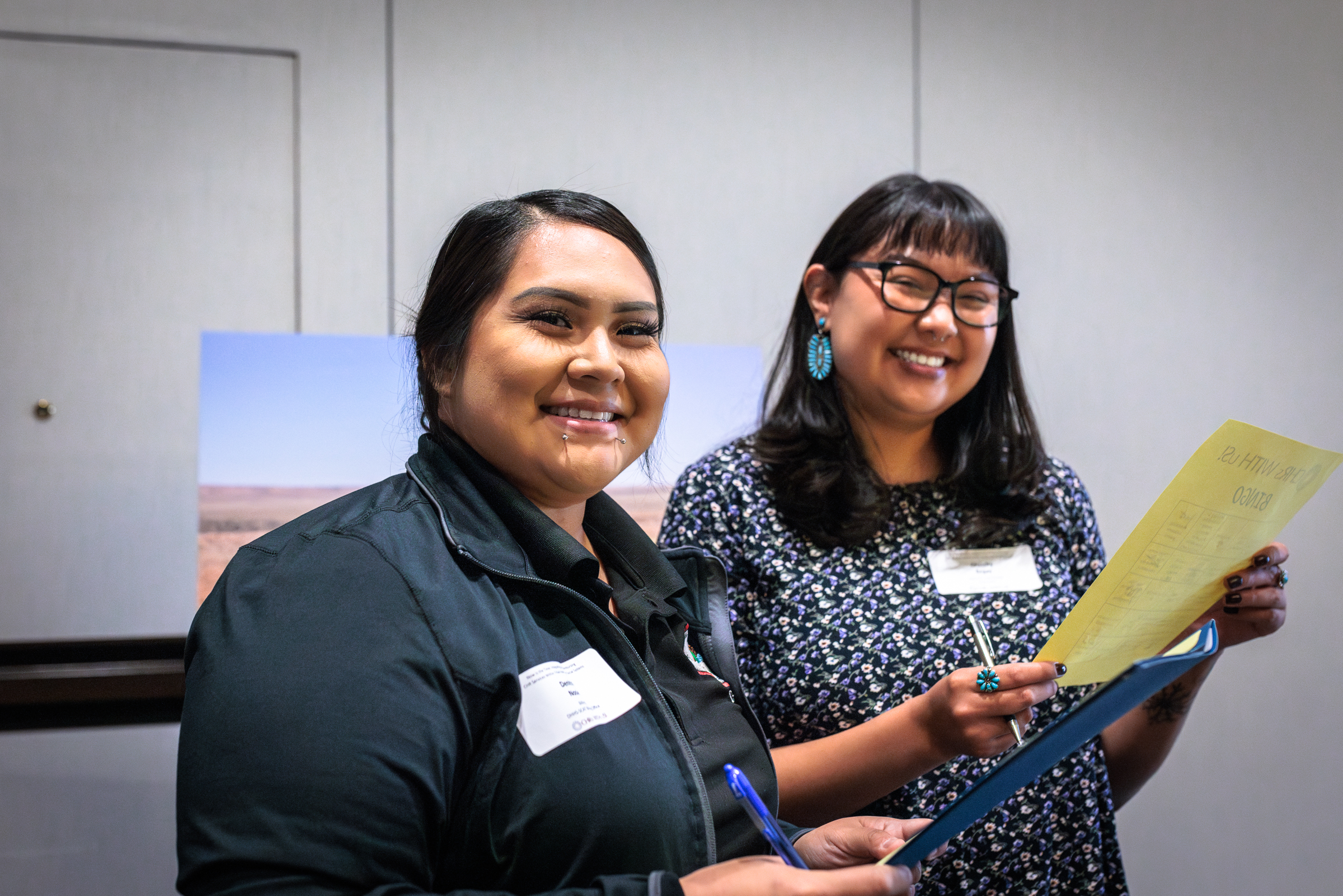
The Now is the Time: Integrating and Reimbursing CHR Services within Tribal Health and Social Systems Conference marked a pivotal moment with the inclusion of healthcare leaders for the first time, signaling renewed support for CHRs in Arizona. Looking ahead, CHRs aim to continue advocating for their vital role in healthcare, ensuring sustained recognition and progress in the field.
Currently the CHRs WITH uS! team at CHER, in collaboration with the AACIHC and seven CHR programs and health care systems, are developing best practice tools to support Tribal healthcare leaders and providers to integrate CHRs within care teams to address patient health and social needs, including coordination of high-risk patients. These resources and associated training will be available in Fall 2024.
To learn more about CHRs and the upcoming training contact:
Louisa O’Meara, MPH
Research Coordinator, Sr.
Center for Health Equity Research
Northern Arizona University
